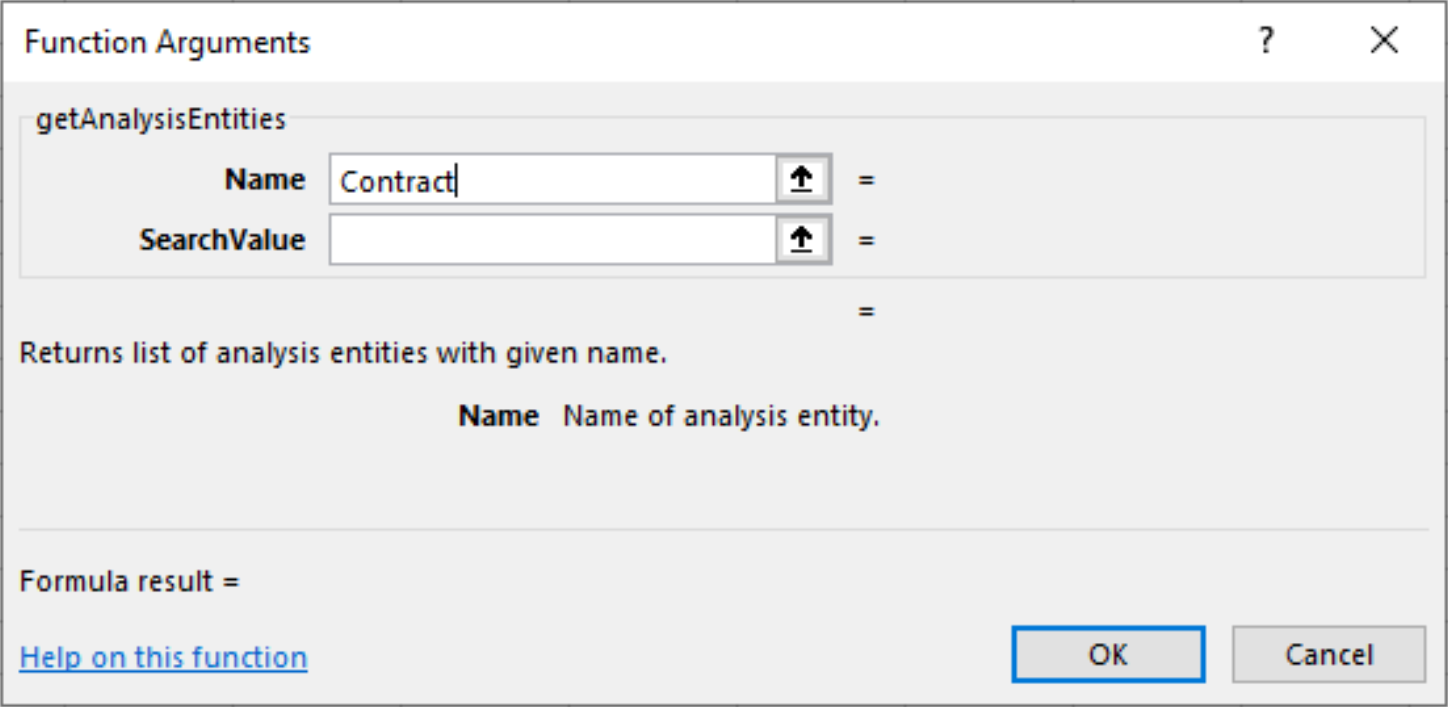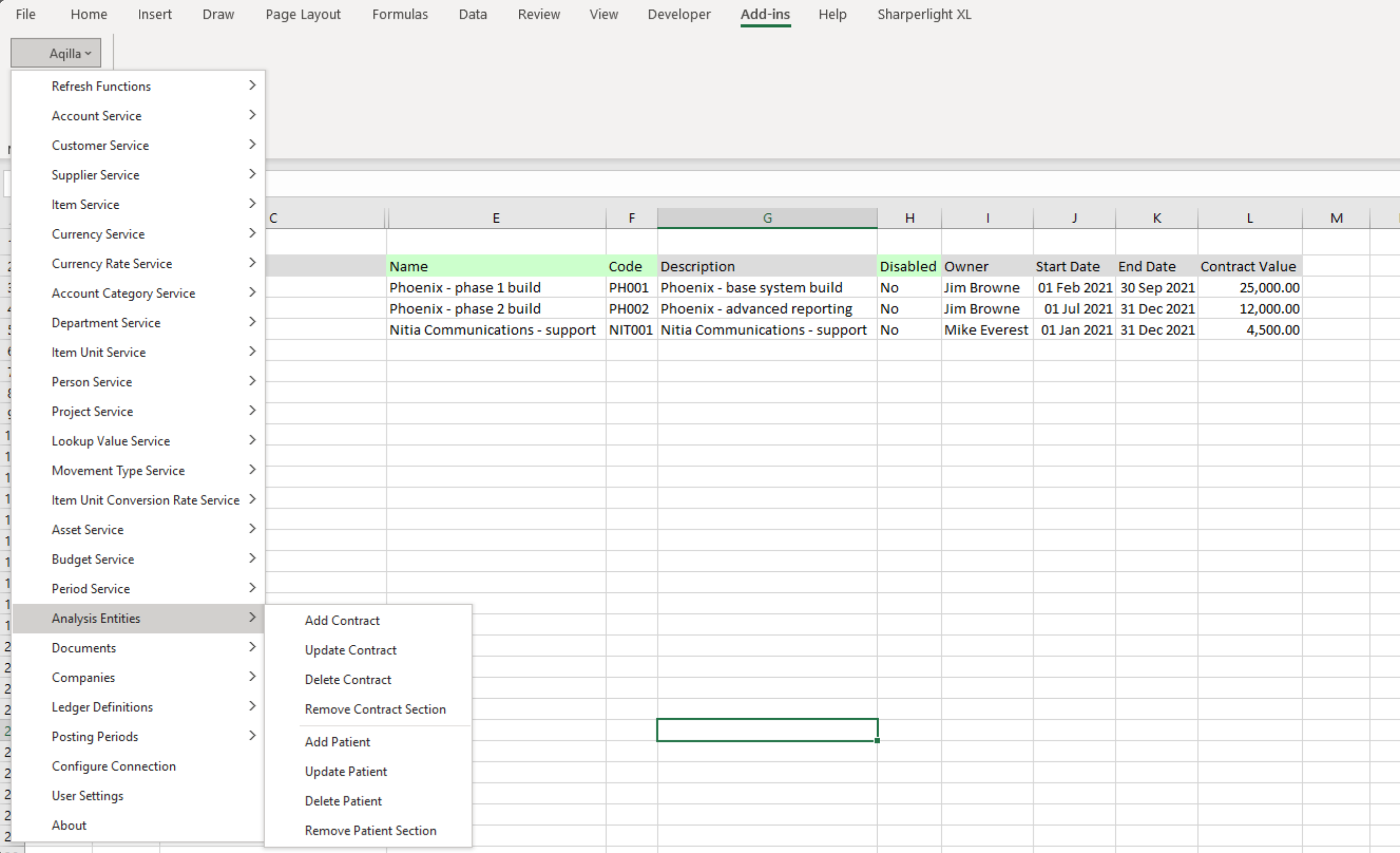Custom Analysis Entities
Custom Analysis Entities
Definable “Super Entities”
Aqilla utilizes many pre-defined entity types such as Accounts, Customer, Projects, Assets, and Items. In fact, each entry under the Reference section is a separate entity or data type. These entities not only identify what they are by means of a code and description but also contain additional information relevant to that entity. In most cases, it is also possible to configure additional information specific to your own use of the system by means of the Attribute Wizard. Such extra attributes can be text (up to 10 different labels), integer (whole numbers of up to 4 different categories), value (decimals across 6 independent fields), dates (x 4) and/or a single block of longer text up to 255 alphanumeric characters.
This feature provides for three additional, user-definable, Super Entity types with the ability to configure additional information specific to that type of entity.
For example, if you require Contract information to be captured, you can have one of the Custom Analysis Entity types enabled and named “Contract”. Additional information can then be configured with the Attribute Wizard such as: Contract Owner (text), Start Date (date), End Date (date), and Contract Value (value).
You can then choose which document types you would want to capture such customized Contract information. Note that Custom Super Entities can be captured in a document header or on each document line. When a document is posted to the ledger the Contract information will be automatically linked to the ledger transactions.
The Contract and its associated information will then be available to subsequent enquiry and reporting. For instance, a report could be created analyzing contract spend by say the responsible Contract Owner.
The process of enabling a Custom Super Entity is straight forward but must be done by Aqilla support or one of our consultants. The amount of work will depend on the number of documents that will need configuring and whether you need help configuring additional attributes or additional reporting.
Contact support@aqilla.com or your Aqilla account manager if you would like to discuss this feature further.
Once a Super Entity has been configured in Aqilla, the data relating to that entity can be maintained using the Excel add-in like any other entity such as account, project, and asset.

Extracting data from Aqilla using the “getAnalysisEnties” function
The first parameter is the name of the Super Entity, in this example “Contract”. The second parameter is optional and can be used to filter out a subset of records by specifying the initial characters of the value of the Name, Code, Description or Text1 to Text10.
For example, if the parameter is set to “AB”, all records where Name, Code, Description or Text1 to Text10 starts with “AB” will be returned. Note that the search values should be specified within quotes.

Updating Aqilla
Once changes have been made, the data is updated by selecting the appropriate menu option under Analysis Entities.

Documents using Custom Entities
If any documents have been configured to use Super Entities these will be automatically added to the add-in version of the document and the contents validated.
In the example on the right, Contract has been added to the sales invoice line and the values supplied has been rejected as not being a valid contract code.
Please note to use these features requires an optional upgrade of the Aqilla Microsoft Excel Add-in.

